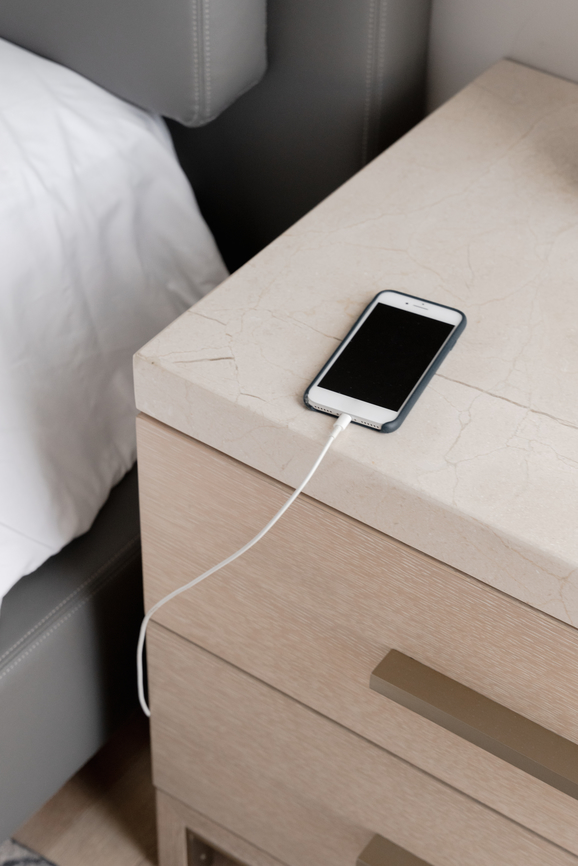
How A “Sex Checklist” Saved My Relationship
Time management is not in my DNA. It’s not just being late: Often, it’s having too much time and too many options within a given period. And it’s taking too little time to complete a task. (Yes, it’s exhausting. And yes, the Cheesecake Factory is a dangerous place for people like me.)
Admittedly, I’ve had recurring, similar issues around sex: In college and grad school, sex was flippant and unreflective, an act of convenience. Then, despite becoming more organized and structured into adulthood (I am a checklist-obsessed paper planner), sex remained shapeless and spontaneous in a way that ironically made me feel in control and optimally desired.
That changed when I met my current partner. A religious upbringing, ADHD, and a traumatic past relationship made his sexual evolution much different than mine. While sex brought me confidence and release, sex took him to a more complicated and anxious place that sometimes included feelings of inexperience or inadequacy.
“While sex brought me confidence and release, sex took him to a more complicated and anxious place that sometimes included feelings of inexperience or inadequacy.”
Don’t get it twisted: We had hot sex. Still, the impulsive and organic initiation felt like walking on eggshells, where a misstep by either one of us meant the evening took a confusing, unintentional turn. If my partner took too much time to get ready for bed, I would get annoyed. If I tried something new — like talking dirty or a different sex position — he would get thrown off.
Without a plan in place, sexual anxiety in the moment could derail a potentially amazing night. And I knew if we kept doing things “my way,” we would break up. Or worse, we’d stay together, resentful and caught in a cycle of competing sexual languages.
So, we made a plan. We went to our respective therapists for resources, mostly around ADHD learning structures and boundary-making. With our new reading list, we decided what resonated with each of us and created a “Sex Checklist.”
When you think about it, accountability and structure are what many of us use in other parts of our lives (like workout regimens, chore wheels, or progress reports). If this approach works in our professional, creative, educational, and home endeavors, perhaps it would work for my sex life too.
That was my hope at least. And it worked. Here’s the list my partner and I created and continue to follow:
1. Monthly: We Make & Review A Sexual Check-In
On the first of every month, my partner and I go through a list. This list is of our individual sexual needs and the sexual needs of our relationship. I want to emphasize that this isn’t a casual “stream-of-consciousness” exercise but a physical list on a sheet of paper that we review monthly. The list communicates our expectations for the month and lets us reconnect with our sexual satisfaction, milestones, and high points.
A bonus: these high points get more mileage; revisiting them weeks later is like a second, bonus wave of hotness.
2. Weekly: We Designate A Night For Sex
Once a week, we designate a night for sex and make it our number one priority. And when I say sex, I mean any sexual connection — from doing a sex worksheet to giving massages to having sex. It’s whatever we decided on during the check-in. “Sex Night” is much bigger than the sum of its parts: it’s about a safe and consistent space to explore intimacy and maybe have a couple of orgasms along the way. In fact, this Sex Night has been so successful, it has since expanded to two nights per week.
3. During Sex: We Embrace A “Sex Flow”
We’ve also created a loose order of sexual events that we can engage in, unless we’ve discussed otherwise. It’s designed with our history and backgrounds in mind and allows us to build up to sex slowly and establish trust and comfort. This gives us both the stability and confidence that we need during sex. It changes and expands every month (next month, we’re concentrating on oral sex and massage, for example!), but it is a baseline for us both to stay on track if something does derail us — like too much wine or a bad day at work.
I know what you’re thinking — girl, that’s a lot. And when I look at it in paragraph form, point taken. But it works for us! It’s brought both our anxiety down around sex: we know when we’ll have it, what will happen, and that we’ll both get our sexual needs met. I can confidently say that the clarity, consistency, and built-in communication has truly saved our relationship. Without it, it would be an ambiguous hurt-feelings nightmare and a repeat of communicational habits from our past relationships (no thanks).
“The result of the Sex Checklist is what’s making us stronger.”
Perhaps even more importantly, the result of the Sex Checklist is what’s making us stronger. Because of it, we’ve learned to create a space to not only build our sex life but to track our progress and celebrate our intimacy in a way I never thought possible. The checklist has brought profound and positive changes to my relationship, and I’m confident it can evolve to whatever we want it to be or include in the future.
Of course, ye olde Sex Checklist isn’t perfect. Sometimes we do miscommunicate during sex, or one of us just isn’t feeling it. And that’s okay! The list feels its strongest when something goes awry because its mere existence puts us back on track.
In a way, it feels like sex has finally caught up to how I approach the rest of my life: With more intention, more fun, and of course, more checklists.
Rebecca Leib is a writer, podcaster, and comedian. Check out her comedy/history podcast, “Ghost Town,” and find her on Instagram and Twitter at @RebeccaLeib.



